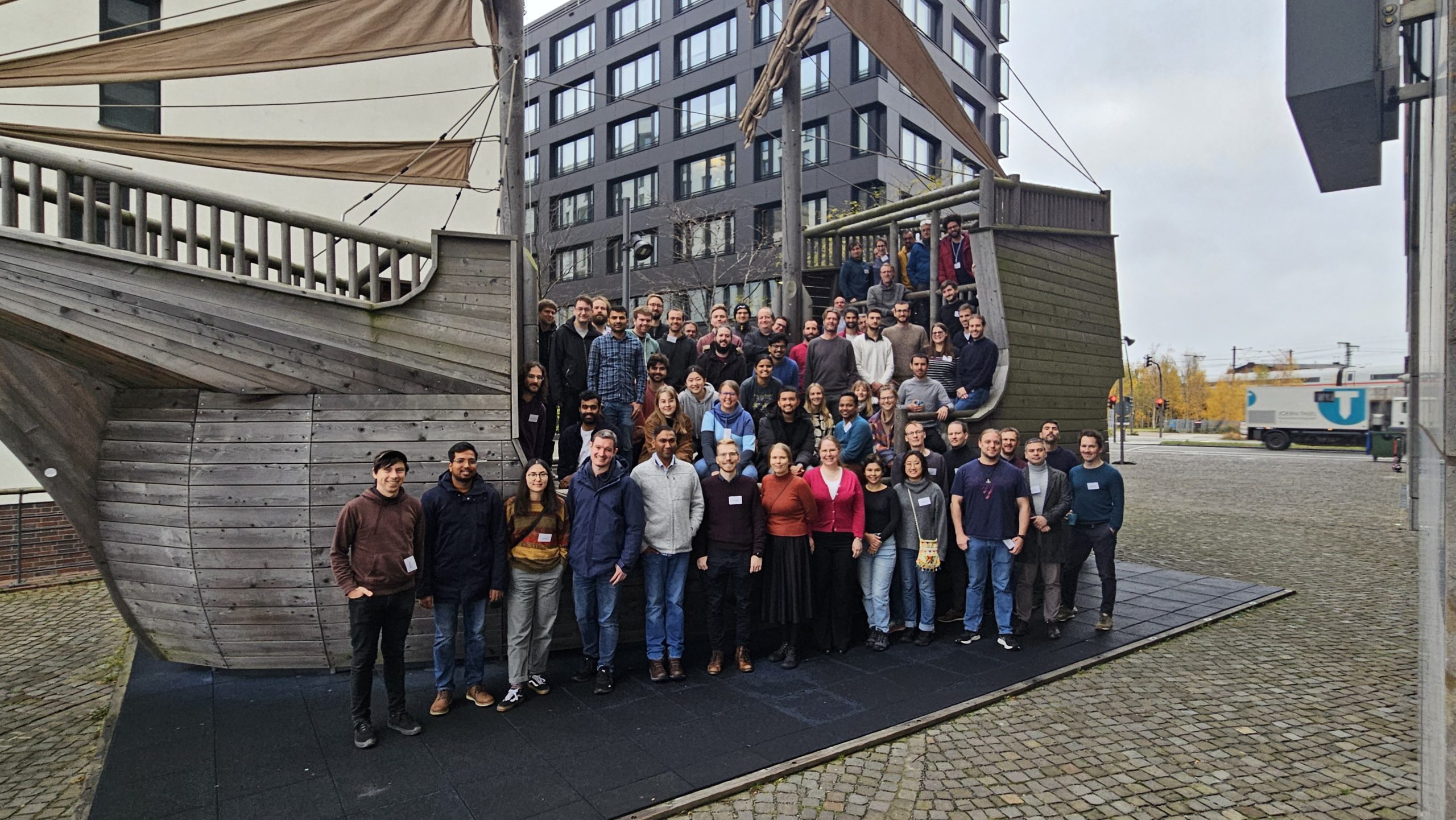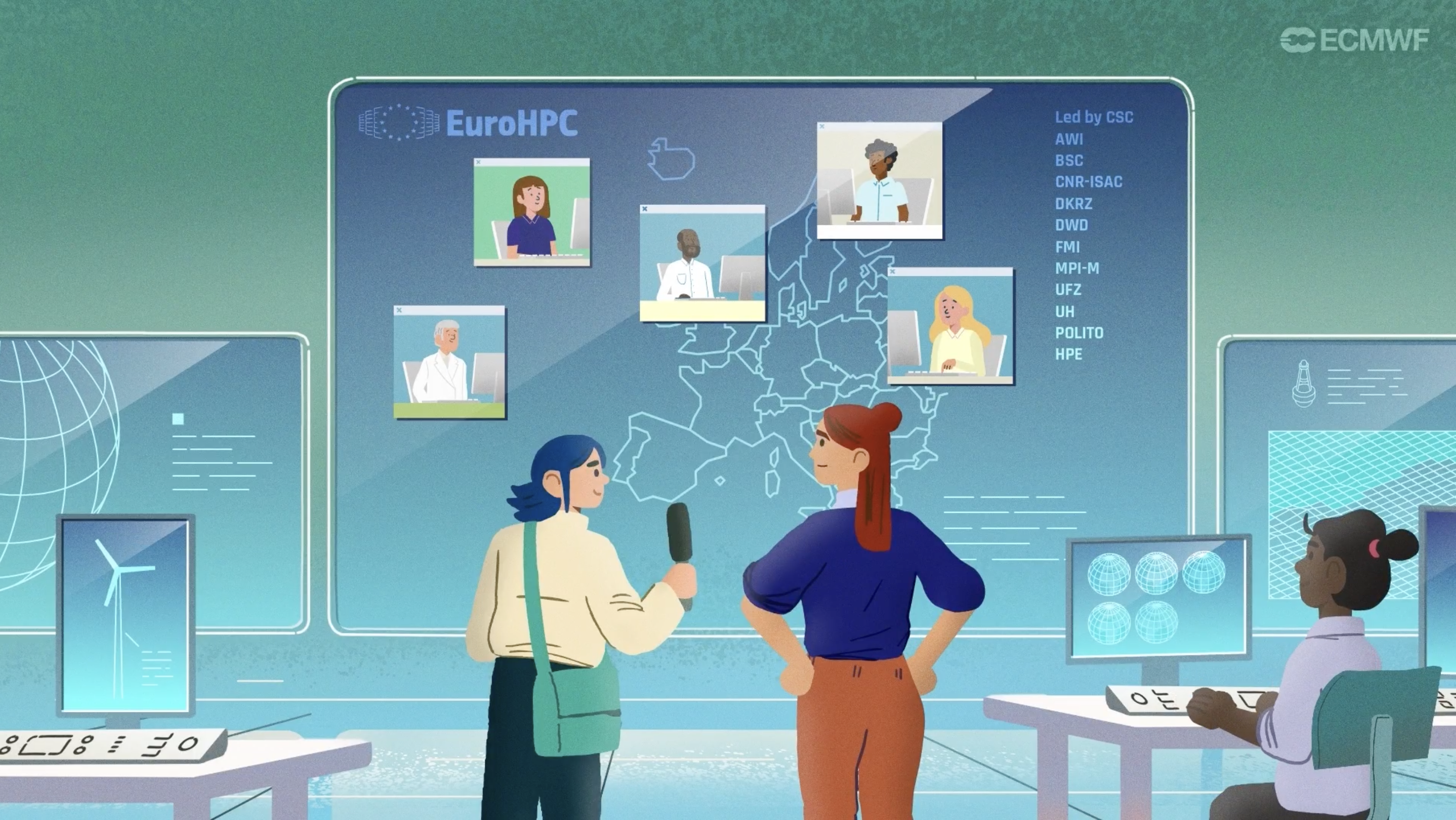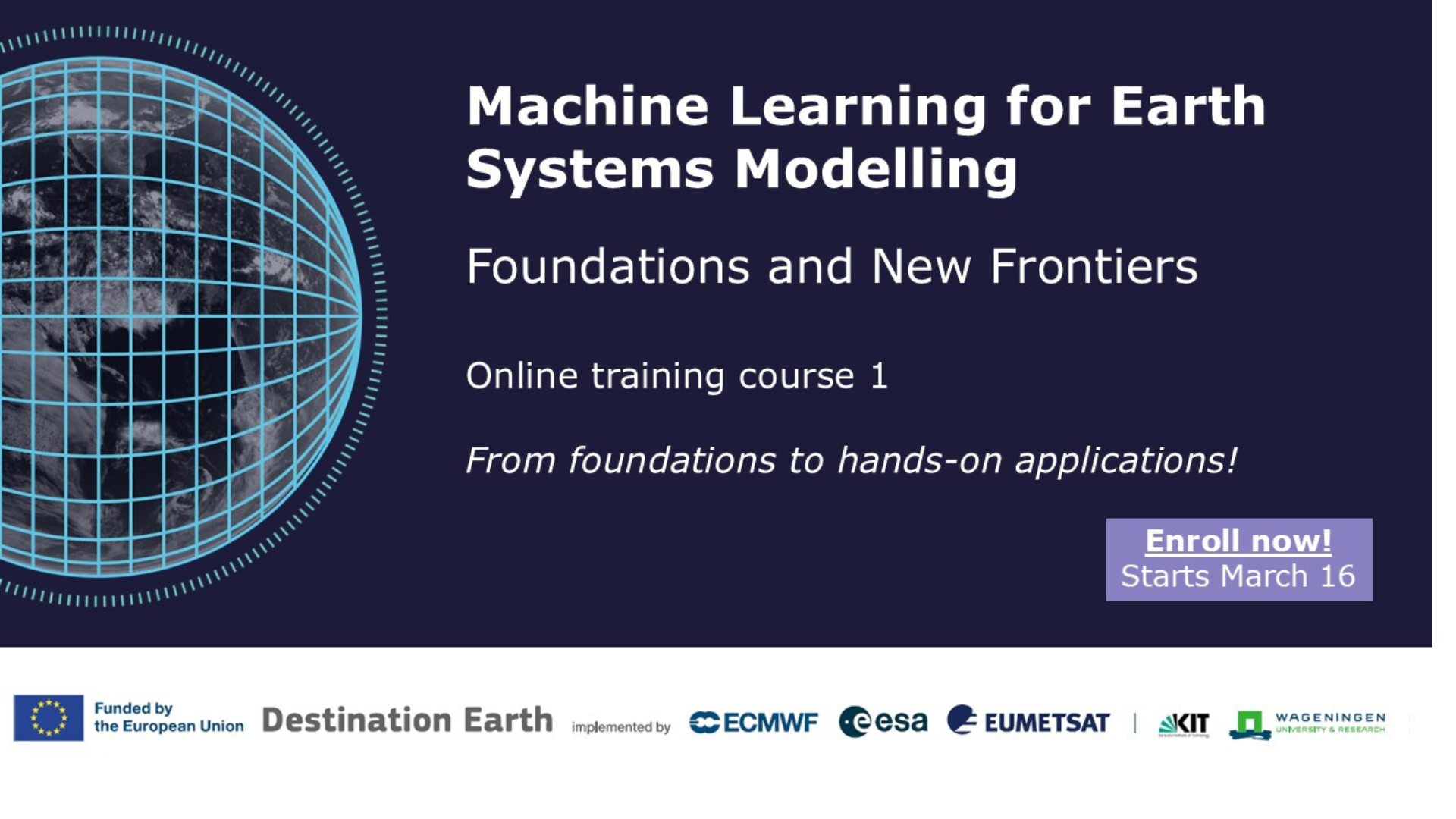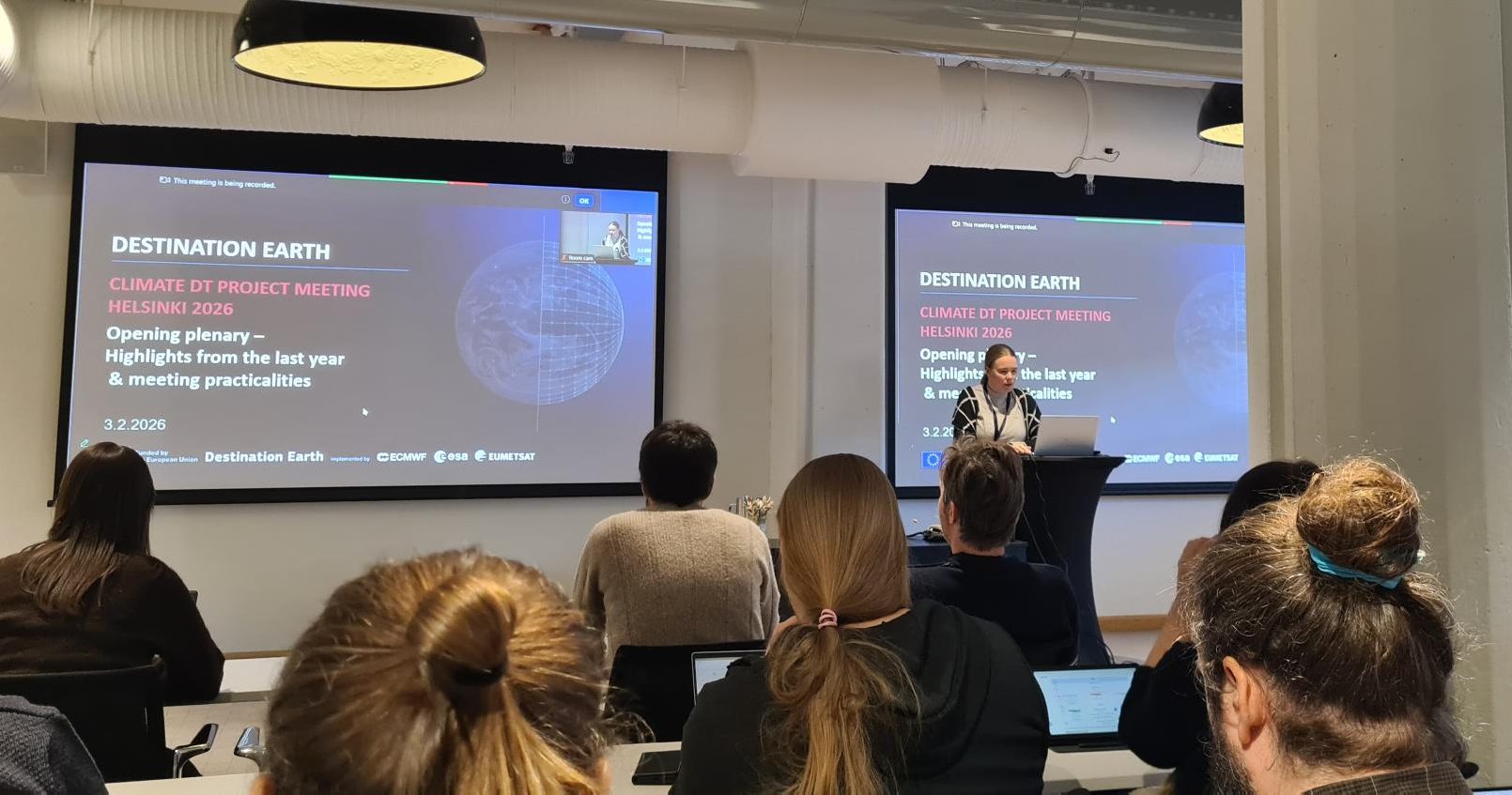
From 11 to 15 November 2024, around 70 experts and partners from all over Europe came together for the Climate Digital Twin (Climate DT) project meeting and hackathon. The event took place at the Betahaus Hafencity in Hamburg, where participants gathered to accelerate progress in the second phase of the ambitious EU initiative Destination Earth (DestinE).
Occuring just over six months into DestinE’s second phase, the project meeting and hackathon were a good opportunity for scientists working on the Climate DT to meet in person. The aim of the project meeting on 11 November was to discuss crucial steps in Phase II towards developing an operational framework for the Climate DT, a novel operational capability for multi-decadal projections at km-scale.
The discussions focused on key areas that are critical to advancing the Climate DT, including:
- Updating data portfolio to meet user requirements
- Integrating model upgrades for improved simulation quality
- Seamless integration of impact sector applications and global climate models in the operational workflow
- Optimising climate model configurations for more efficient resource usage on supercomputers like LUMI and Mare Nostrum 5
- Use of AI to augment the Climate DT capabilities
- Transitioning towards an operational workflow for climate simulations

Hands-on collaboration during the hackathon
The hackathon that followed the project meeting focused on hands-on work to address current challenges identified in the project meeting and delve into collaborative problem-solving sessions. For four days, scientists worked intensively on integrating new developments into workflows, optimising system configurations, and preparing for operational climate simulations.

A major theme of the hackathon was the use of AI and machine learning. As the project scales up in Phase II, AI is increasingly being explored to quantify uncertainties in the Climate DT outputs. Additionally, participants discussed the potential of using large language models to enhance user interaction with the Climate DT, potentially making it more accessible and intuitive for users.
An excellent example of European collaboration
The event underscored the value of European collaboration in tackling the complexities of climate modeling and simulation. The Climate DT initiative is a collaborative effort led by CSC – IT Center for Science, involving 12 leading climate research institutions, supercomputing centers, national meteorological services, academic bodies, and industry partners who work in close collaboration with ECMWF scientists.
By bringing together diverse expertise from research, operational centers, and industry, the Climate DT initiative continues to demonstrate how collaboration throughout Europe can drive innovation and progress for tackling the most pressing climate challenges.
Watch our video to hear from scientists about their experiences and insights from the Climate DT project meeting and hackathon, as well as the collaborative work on the Climate DT.
The outcomes of the meeting and hackathon will guide the project’s next steps as the team works towards operationalising the Climate DT.
Learn more about the collaborative work and developments of the Climate DT here.
Destination Earth is a European Union-funded initiative launched in 2022, with the aim to build a digital replica of the Earth system by 2030. The initiative is being jointly implemented under the leadership of DG CNECT by three entrusted entities: the European Centre for Medium-Range Weather Forecasts (ECMWF), responsible for the creation of the first two ‘digital twins’ and the ‘Digital Twin Engine’, the European Space Agency (ESA) responsible for building the ‘Core Service Platform’, and the European Organisation for the Exploitation of Meteorological Satellites (EUMETSAT), responsible for the creation of the ‘Data Lake’.
We acknowledge the EuroHPC Joint Undertaking for awarding this project strategic access to the EuroHPC supercomputers LUMI, hosted by CSC (Finland), and the LUMI consortium, Marenostrum5, hosted by BSC (Spain) Leonardo, hosted by Cineca (Italy) and MeluXina, hosted by LuxProvide (Luxembourg) through a EuroHPC Special Access call.
More information about Destination Earth is on the Destination Earth website and the EU Commission website.
For more information about ECMWF’s role visit ecmwf.int/DestinE
For any questions related to the role of ECMWF in Destination Earth, please use the following email links:
Press and Communications enquiries
© Title image: Elina Plesca, Max Planck Institute for Meteorology.


